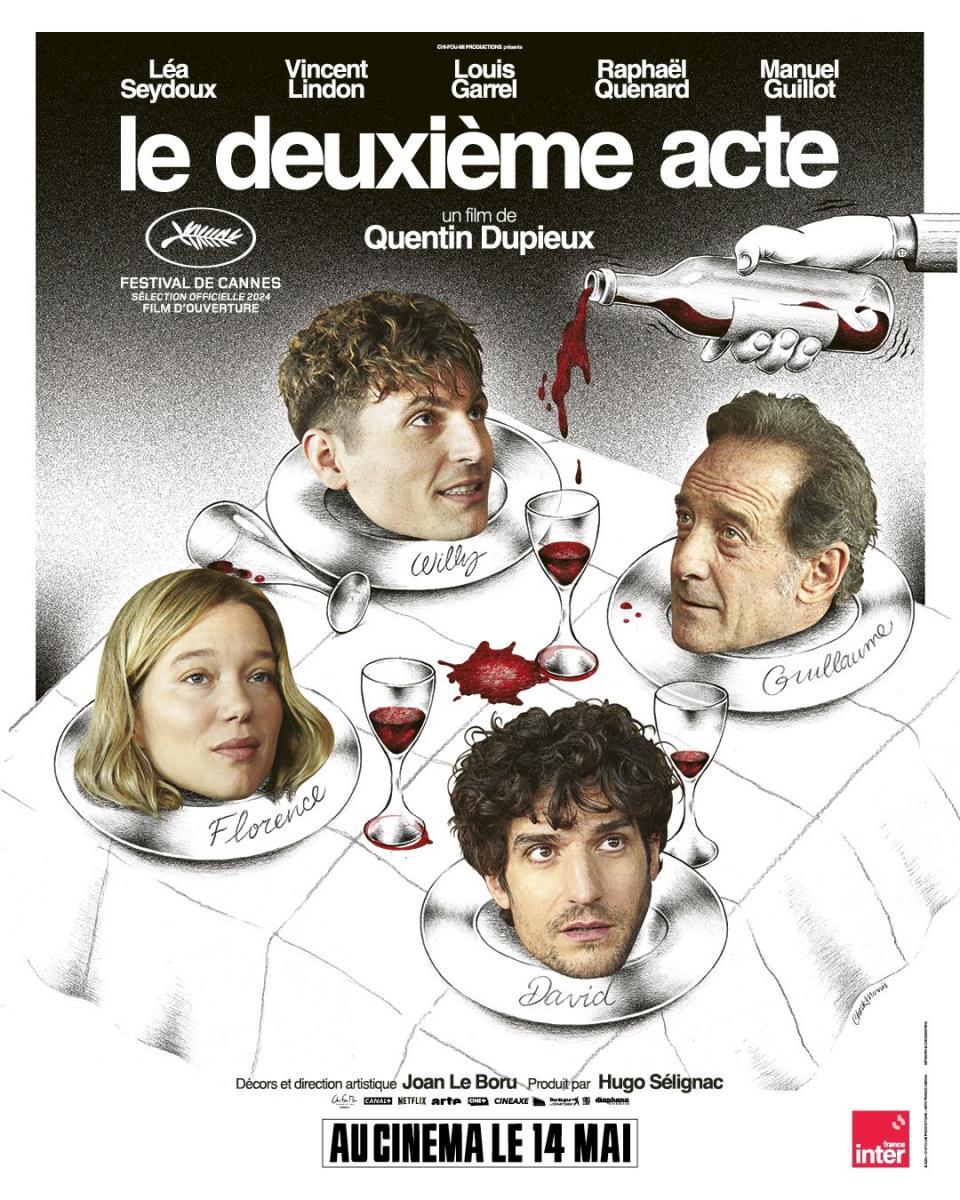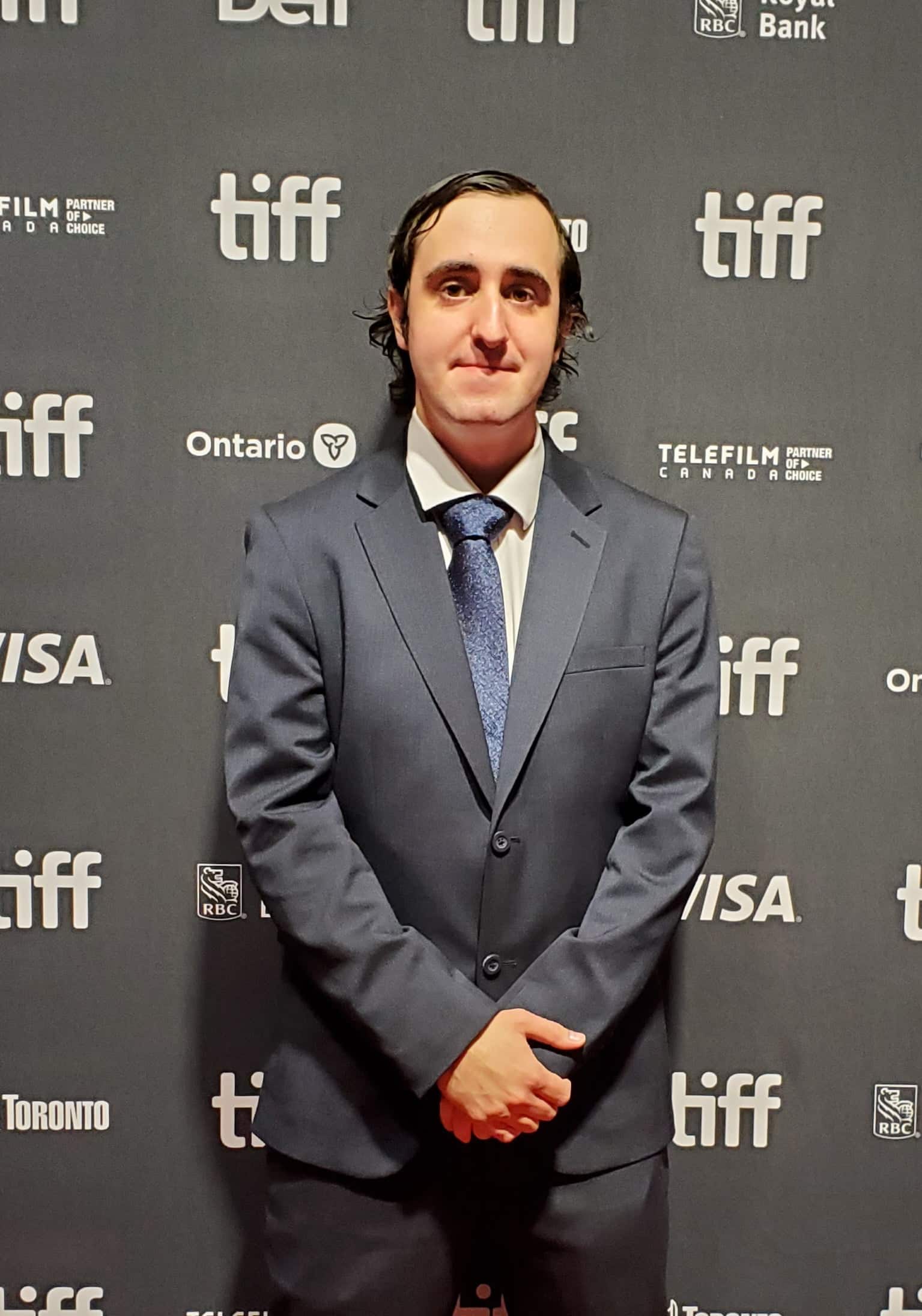
- Starring
- Léa Seydoux, Vincent Lindon, Louis Garrel, Raphaël Quenard
- Writer
- Quentin Dupieux
- Director
- Quentin Dupieux
- Rating
- n/a
- Running Time
- 85 minutes
- Release Date
- n/a
Overall Score
Rating Summary
This will be one of many reviews during this year’s edition of Montreal’s ‘Festival du Nouveau Cinéma,’ to keep up with our latest coverage, click here
The Second Act (or Le Deuxième Acte) shows writer-director Quentin Dupieux continuing his trajectory of creating more surreal, absurdist stories under much more limiting resources. His latest is his most meta film yet as he tackles a fourth wall-breaking film-within-a-film. Meanwhile, Dupieux brings together a dynamic ensemble consisting of well-established French actors such as Léa Seydoux, Vincent Lindon, Louis Garrel, and Raphaël Quenard (a rising Dupieux regular). The film follows these four as they play fictitious actors who break the fourth wall during the filming of a deliberately stereotypical love story where Florence (Seydoux) is trying to introduce David (Garrel) to her father (Lindon), whereas David is not reciprocating the same feelings and wants to match her with his friend Willy (Quenard).
Dupieux has proven in Yannick and Daaaaaalí! that he can equip a well-paced, witty tale mirroring a comedic play brought to life through France’s plethora of dynamic actors. Unfortunately, The Second Act sees him hit a ceiling. Much of the 80-minute runtime is padded with long tracking shots switching between different duos as they discuss this awkward love story in extreme detail. Along the way, the actors break character when realizing some of the dialogue does not make sense, but still continue like nothing happened. These four energetic actors are ultimately what keeps the film’s drawn-out story interesting, as they delve deep to express interest in the stereotypical love story that they are normally above doing. On top of that, they are quick to adapt and switch characters when the time comes, making audiences fortunate enough to forget the clutter that came before it.
Here, Dupieux also presents a potential future of artificial intelligence taking over the film industry through AI producing his film-within-a-film without providing a meaningful message on this controversial topic. As the ensemble switches from characters to actors, Dupieux is conveying that humans can be predictable through the eyes of AI, providing them with the ability to create frighteningly accurate and relatable stories that audiences would be interested in. However, how he displays this message is counter-intuitive as it fails to provoke discussion in AI as much as he cheaply attempts with other social topics facing the film industry and the rest of the world.
In the end, The Second Act shows that Quentin Dupieux has finally hit a limit in his unorthodox fashion of surreal and absurdist storytelling. The presence of a dynamic ensemble delivers the few chuckles they can through a tiring punchline follows them to an underwhelming finish. Moving forward, Dupieux needs to go back to the drawing board to provide a proper message as he was too ambitious to tackle a polarizing topic with his given resources.
still courtesy of Diaphana Distribution
If you liked this, please read our other reviews here and don’t forget to follow us on Twitter or Instagram or like us on Facebook.
Discover more from
Subscribe to get the latest posts sent to your email.

